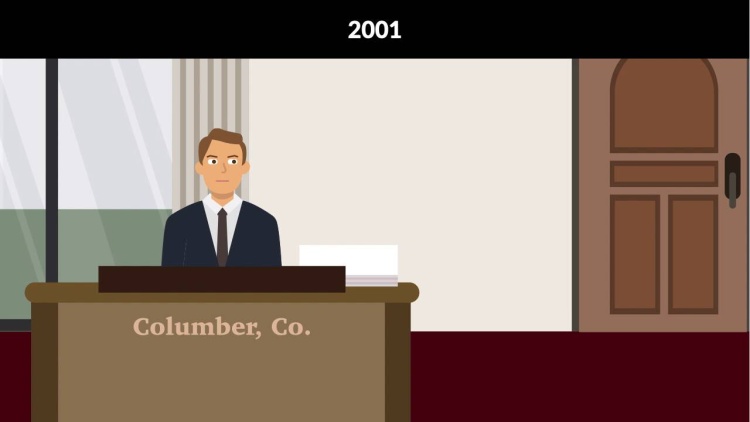Lake Land Employment Group of Akron, LLC v. Columber
Supreme Court of Ohio
101 Ohio St.3d 242, 804 N.E.2d 27 (2004)

- Written by Christine Hilgeman, JD
Facts
Lee Columber (defendant) began working for Lake Land Employment Group of Akron, LLC (Lake Land) (plaintiff) in 1988. In 1991, Lake Land asked Columber to sign a non-competition agreement. Columber received no increase in salary or other benefits for signing the agreement, but he continued to work at Lake Land until 2001, at which time he terminated his employment and started a business that was substantially similar to the business of Lake Land. Lake Land sued Columber for breaching the non-competition agreement he signed in 1991. Columber admitted that he signed the agreement but moved for summary judgment on the ground that the non-competition agreement was unenforceable for lack of consideration and because the terms were overly restrictive and unreasonable. The trial court granted summary judgment in Columber’s favor, finding a lack of consideration, and without considering the reasonableness of the terms of the agreement. The court of appeals affirmed the trial court’s ruling but certified a question to the Supreme Court, asking whether continued employment is adequate consideration to support the enforceability of a non-competition agreement.
Rule of Law
Issue
Holding and Reasoning (Moyer, C.J.)
Dissent (Resnick, J.)
Dissent (Pfeifer, J.)
What to do next…
Here's why 910,000 law students have relied on our case briefs:
- Written by law professors and practitioners, not other law students. 47,100 briefs, keyed to 997 casebooks. Top-notch customer support.
- The right amount of information, includes the facts, issues, rule of law, holding and reasoning, and any concurrences and dissents.
- Access in your classes, works on your mobile and tablet. Massive library of related video lessons and high quality multiple-choice questions.
- Easy to use, uniform format for every case brief. Written in plain English, not in legalese. Our briefs summarize and simplify; they don’t just repeat the court’s language.





